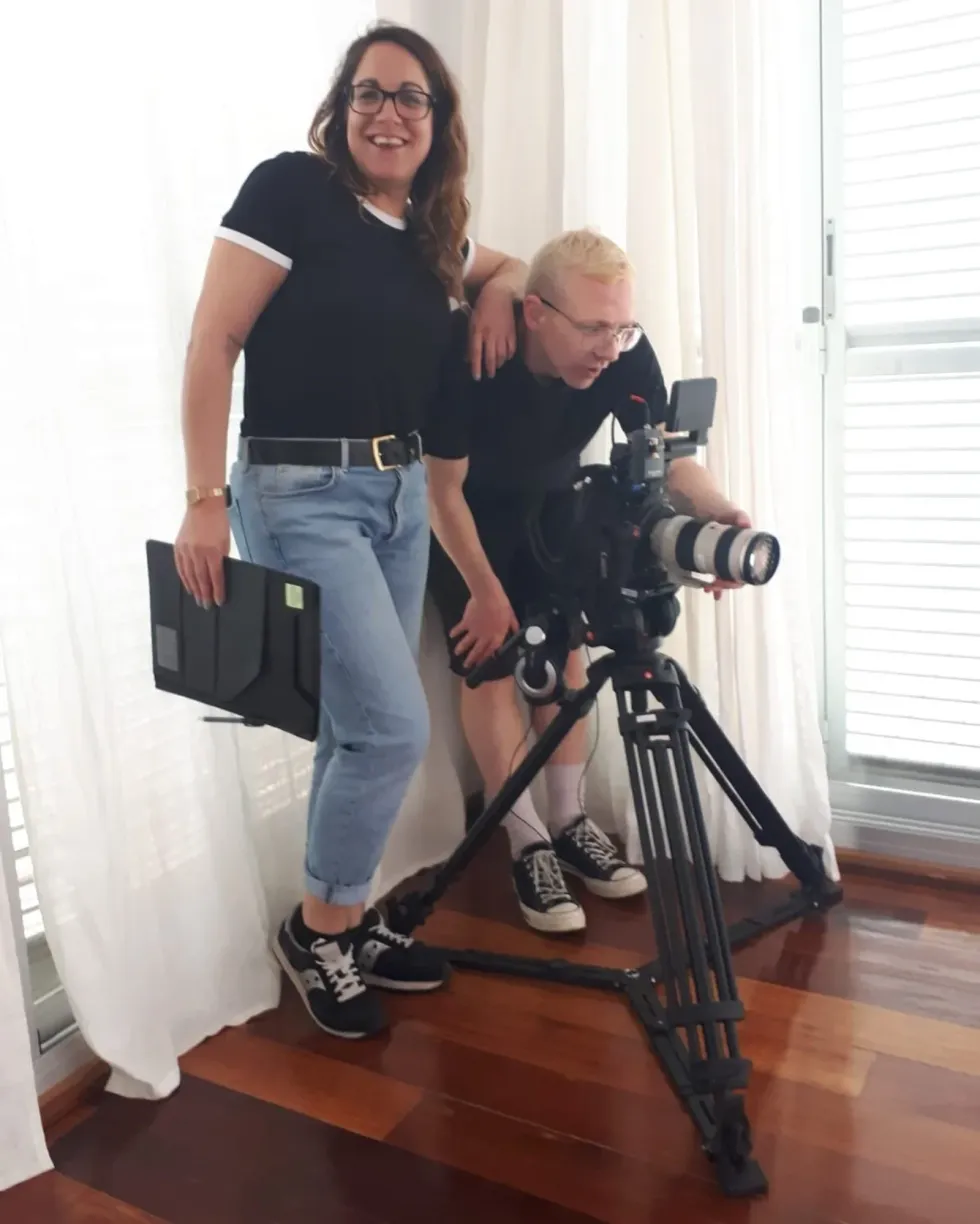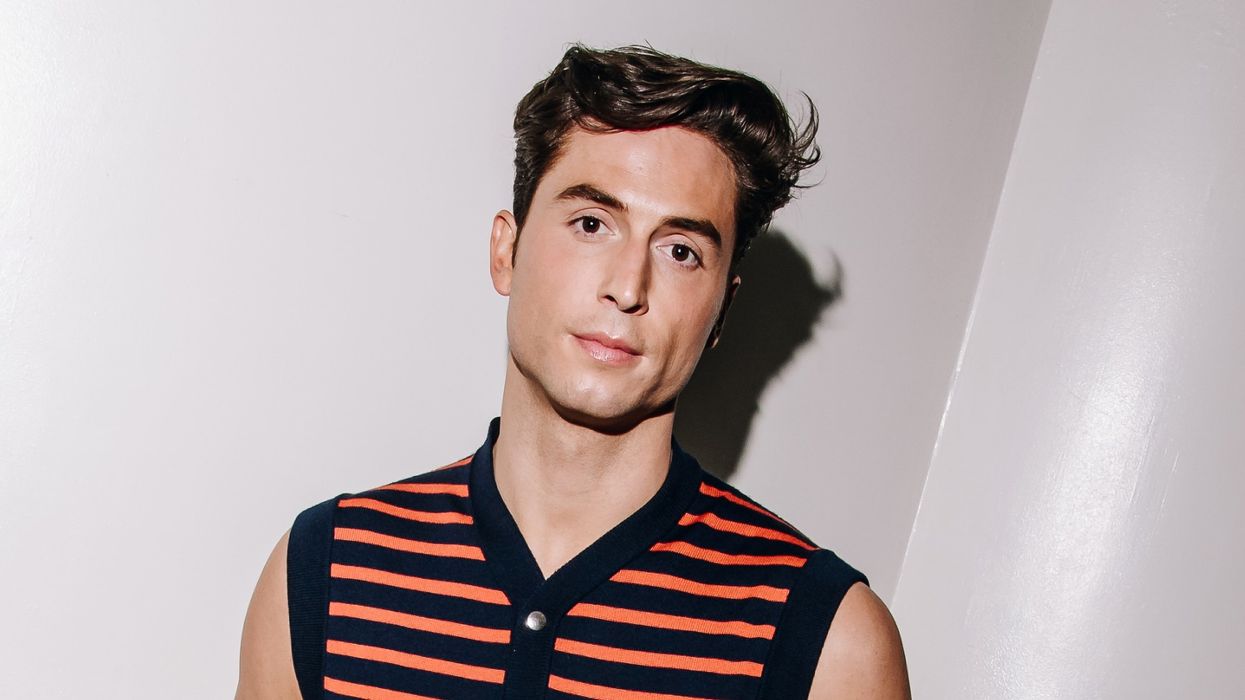Saltburn, All Us Strangers, Red, White & Royal Blue, and Fellow Travelers all lit up both the screen and queer pop culture in 2023. Each in their way they proved revelatory about queer love, sex, and sexuality, but they also share one thing in common — they center men loving men. This begs the question, where are the women loving women? Where are non-cishet queer folks? Our community is complex and diverse as is how we express ourselves in the bedroom. How are we succeeding and failing to translate that to film and TV? And perhaps more importantly where do we want to go from here?
In these companion opinion pieces for PRIDE, associate editor Bernardo Sim discusses the state of men loving men (MLM) sex scenes in mainstream movies and TV shows, while writer Shelli Nicole offers her perspective on sex scenes featuring folks with queer identities beyond cishet men — with her focus on those who are dyke/dyke adjacent—within mainstream media. They talk through and untangle the intricacies of queer sexual representation in pop culture. True diversity, the male gaze, and calls to action are all touched on throughout their pieces. As lovers and consumers of pop culture, they crave genuine reflection and aspirational fantasy of their identities in film and TV. As the landscape of queer media grows, the time has come for examination of what we’re putting on the screens.
Hollywood must do better — but so must we
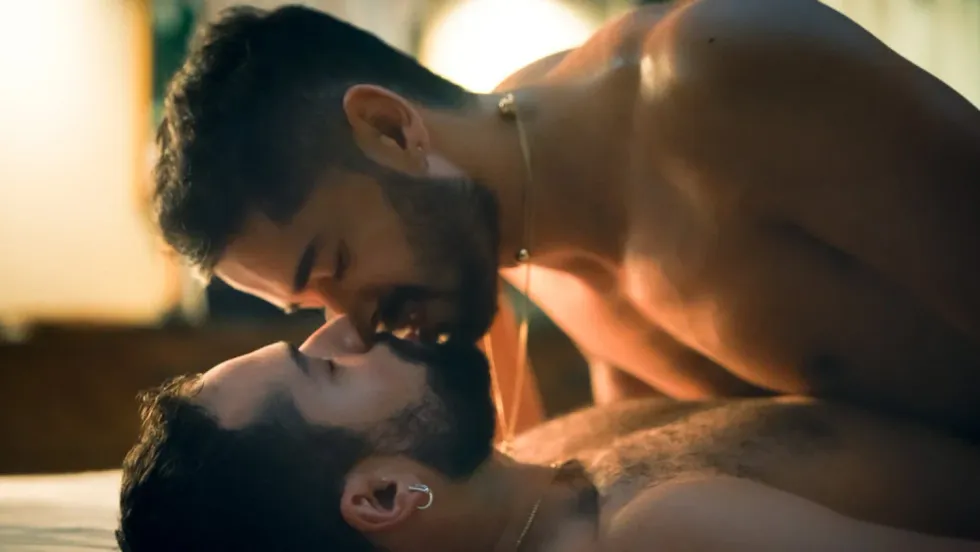
Courtesy of Peacock
In the last few years, Hollywood studios and streaming services have expanded the LGBTQ+ representation displayed in their movies and TV shows. Generally speaking, we’re getting more queer actors, producers, filmmakers, characters, and storylines in mainstream media — but there is something to be said about the kinds of characters and storylines that are now “representing” our community — our voices, traits, interests, desires, sexualities, and personalities.
A big issue we faced in the last few years – 2024 included – is that most of the projects centering on gay men are being made for audiences who are not gay men. I wish I could solely blame studios and streaming services for this practice, but I can’t. Gay men are not known for supporting gay movies and shows. The gays are watching things like RuPaul’s Drag Race, and Pose, and The White Lotus, and Call Me By Your Name, and Saltburn because they’re consuming queer experiences that don’t resemble their own experiences too closely, like that of drag queens competing for a crown, or trans women in the ballroom scene, or that of men who might-be-queer-but-maybe-aren’t-at-all.
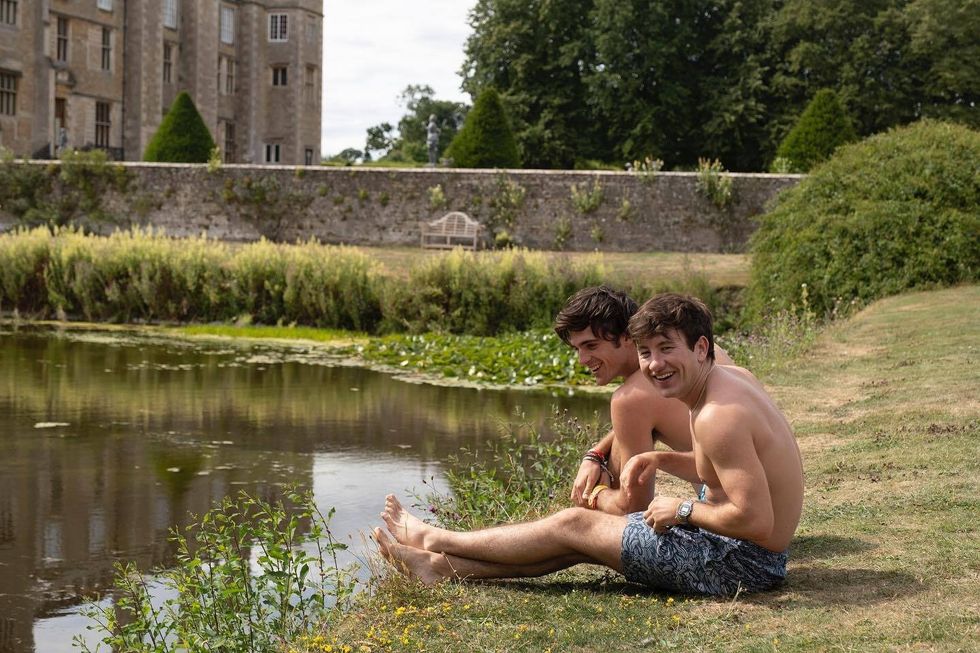
Courtesy of Prime Video
When films and shows like HBO’s Looking, Peacock’s Queer As Folk reboot, Universal Pictures’ Bros, or Vertical Entertainment’s Our Son come around, we hear different versions of the same discourse come back up: they’re never “accurate” enough, like making gay men look like they only care about partying and having sex, or it sanitizes gay men to the point that they’re sexless background characters. It’s too fantastical, or too vulgar, or too comedic, or not funny at all. It feels like trying to capture what gay men consider a “realistic” representation of ourselves is impossible. And while we understand that gay men don’t move as a monolith, it’s bizarre to see how much rejection (or a complete lack of support) gay men direct toward most projects centering on gay men.
As a result, we end up getting films and series that fit one of three categories: 1. An extremely sanitized and nearly sexless love story between two gay men that features fantastical rom-com tropes; 2. A tragic love story about two gay men experiencing loss, suffering, illness, heartbreak, deep insecurities, homophobia, and often death; or 3. An edgy, low-budget indie centering on gay men that is hyper-realistic but usually doesn’t even get seen by a lot of people.
Within category one, we get lots of coming-of-age stories, high school melodramas, and generic romantic comedies that are completely unrealistic by definition. Most of us didn’t have the Heartstopper high school experience, we weren’t anything like the gorgeous and popular lead characters in Love, Simon and Love, Victor, and we aren’t stumbling upon a romance with the prince of the United Kingdom. Some gays vibe with those things, but they get actually made for a female YA audience that loves to watch two sweet gay guys romantically falling in love, as long as things never get too graphic.
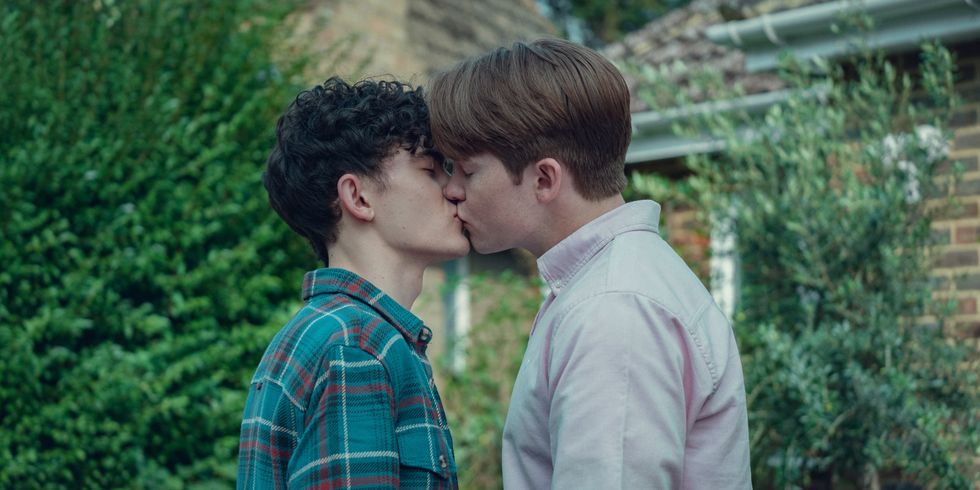
Courtesy of Netflix
For the second category, we get the brutal experiences of Moonlight, Brokeback Mountain, All of Us Strangers, Our Son, A Single Man, and Call Me By Your Name. Some gays watch these movies and even like them. Personally, I love all of these examples. But the truth is that most of these films were made for awards consideration. Somehow, there are never enough gay men going out to see these things and support them… which means that these movies about gay men also have to be palatable to a non-queer audience that can feel bad for how hard our lives can be but are probably not in the mood to watch two dudes having rough sex for more than a few short scenes (but often just one).
And then there’s category three, with so many fascinating movies and shows that fly completely under the radar for most people. We all have these very cool things that we saw, but it feels like you’re the only person who watched it. When you bring it up in conversation with other gay men, no one even knows what the heck you’re talking about.
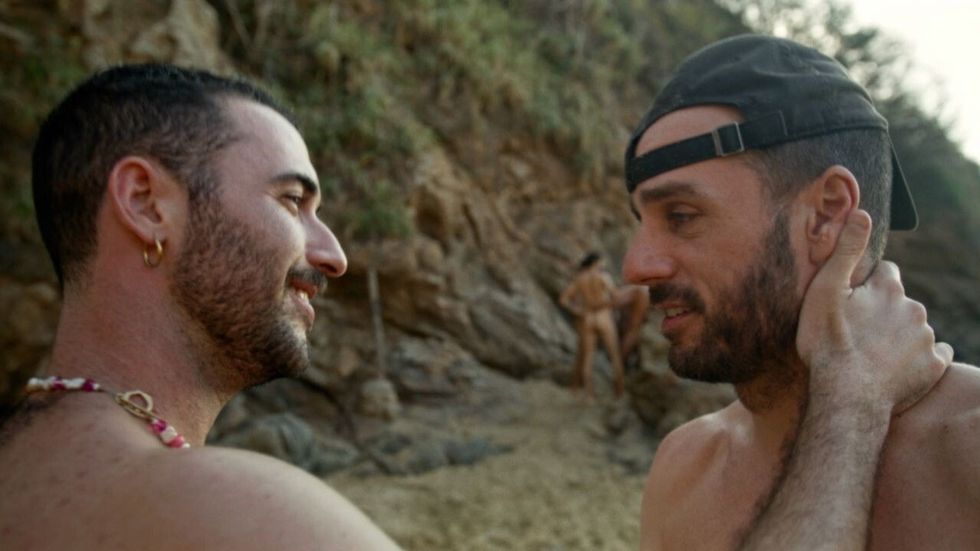
MUBI
There have been a few exceptions, thank gawd. Fire Island was very well received by those who watched it. Fellow Travelers also seems universally beloved by a lot of gay men. Both Fire Island and Fellow Travelers do a phenomenal job of showcasing realistic sex scenes and love stories between two men. Fellow Travelers explored spontaneous sex, romantic sex, kinky sex, cruising, hooking up, cheating, and even top/bottom politics.
Fire Island excelled in showing gay men who like to party and have sex but who also appreciate friendship, heart-to-heart conversations, and perhaps even falling in love with the right person. But those are just two exceptions in a string of endless releases. Everything else needs to be sanitized for the people who are actually watching and paying (often not gay men!), only to then get criticized by gay men claiming that they “don’t see themselves in those characters.” Or we get Oscar-baity, modern-day Greek tragedies, fascinating and thought-provoking, which always end with the worst possible outcome. Some gay men watch these movies when they get nominated for awards but are the first to admit that it’s hard to re-watch a lot of those experiences.
Then there are fabulous indies that take chances and swing hard but don’t feature any of the guys that the gays are following and thirsting over on social media, so they don’t even know these things exist. There are also awful, horrible indies that make you wonder, “Why was this even made?”
Though there have been improvements, and a couple of exceptions, we are going to keep failing to see ourselves in mainstream media if we reject every actual attempt of portraying gay men in the 21st century. “Queer As Folk was pushing too much inclusivity and I couldn’t relate to that,” said the gays who apparently would rather watch more exclusionary projects instead. “Bros was too unrealistic,” said the gays who apparently think that all straight rom-coms are totally serious and grounded in reality. “Looking was all about drinking, partying, and having sex,” said the gays who didn’t understand why this group of young friends living in San Francisco would want to spend any of their time having fun.
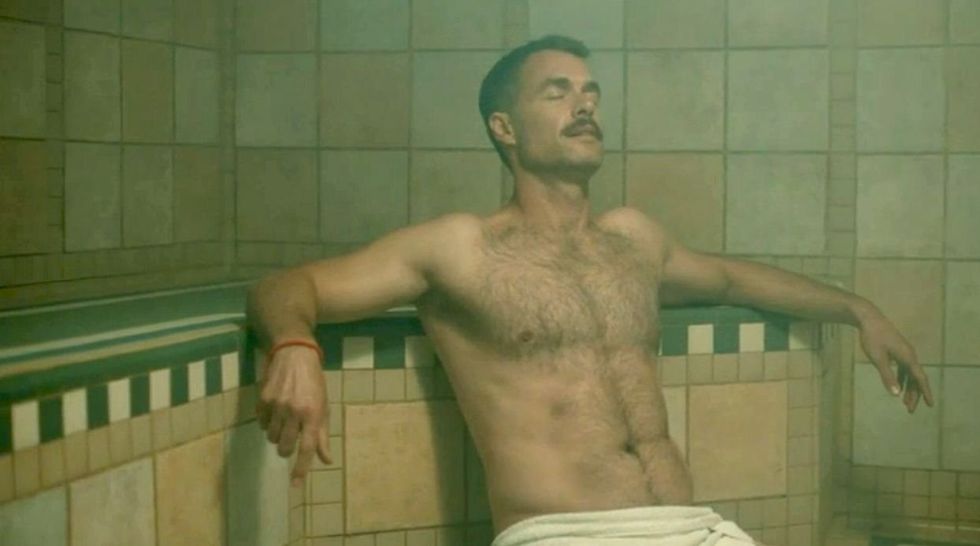
Courtesy of HBO
So we’re gonna keep getting period pieces, high-school soap operas, and stories about illness and death. With sex scenes between closeted dudes who have to meet in secret due to the period that they’re in. Or no sex scenes at all, because the only acceptable end goal for teenagers in movies is to (maybe) get a little kiss. Or the saddest sex scenes of all time, which some like to call “tender” as a compliment, but that are mostly just sad AF because someone is about to die or get an unforgettable heartbreak.
We need to demand better representation of gay sex scenes and love stories from the studios, streaming services, and creators making them. But we also need to, you know, watch and support and rave about these things when they come out. And have an understanding that Heartstopper can be interpreted as a fairytale, and the Queer As Folk reboot was trying its best to correct the wrongs of its past iterations, and Bros had to appeal to all audiences in movie theaters but still managed to cast an all-LGBTQ+ cast of actors, which is freaking awesome. It’s time to accept movies and shows about gay men that are as silly and fun as Mean Girls and Devil Wears Prada. To like and even root for gay male characters who are as chaotic and unhinged as your Real Housewives faves.
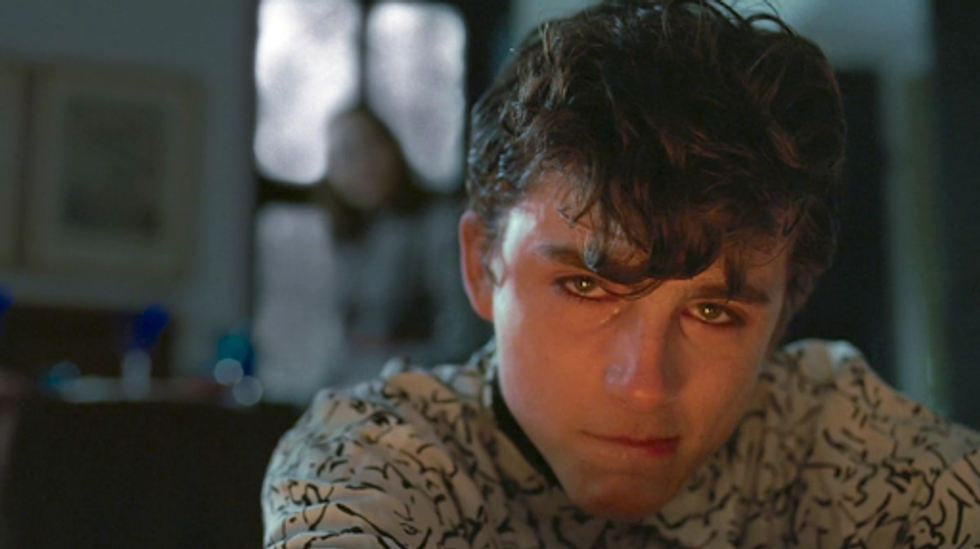
Courtesy of Sony Pictures Classics
If we, gay men, don’t start putting our money where our mouth is and keep complaining about every single thing that isn’t a perfect representation of who we think we are — all while clutching our pearls when we see something that mirrors a truth about ourselves that we aren’t ready or willing to face — then the state of mainstream media centering gay men will stay where it is: binge-worthy high school daydreams, Oscar-nominated countdowns to death and heartbreak, and low-budget experimental projects from actors, writers, and directors who are running out of patience to convince you to watch their damn passion projects. —Bernardo Sim
So sick of dykes being proud of pining—stop it.
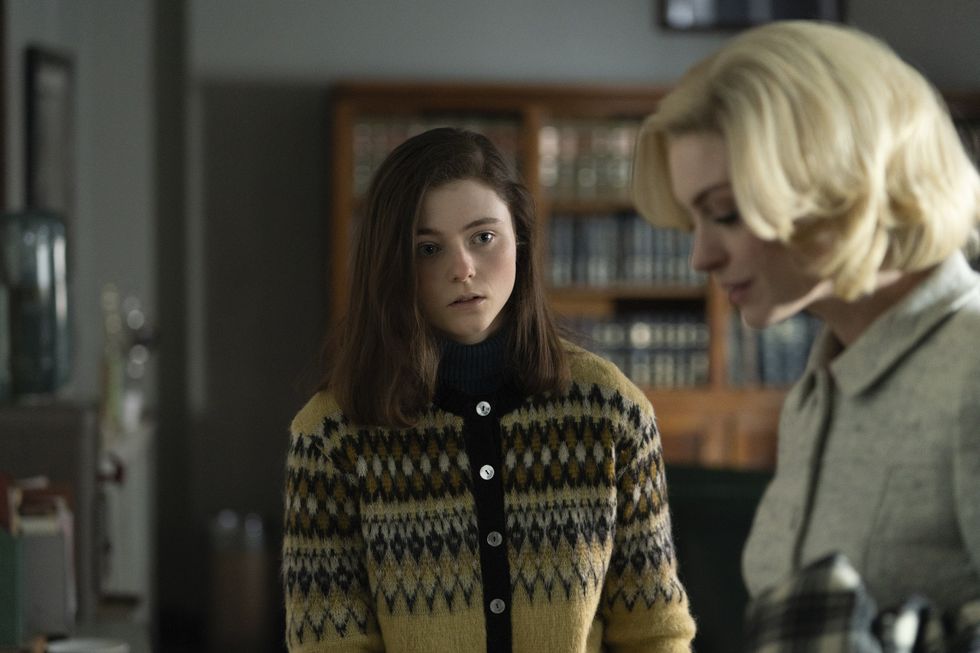
Courtesy of Neon
Sex in film is often fly to see, but beyond making you sweat in the theatre and shift in your seat, it’s also important to see. In many instances, it's even necessary to. A film can be a dope reflection of who we are. While you can watch a movie just for the sake of looking for a laugh, a good cry, or to learn something, we also look to the screen to see and sometimes find ourselves. Sex scenes in films have become a sort of Sex Ed teacher to many. Think of films like Porky’s, American Graffiti, Cooley High, and American Pie. All films that showed high school horniness and the exploration that many teens feel and experienced. Now while you’re there—let’s jump over to the queer side of things—particularly dyke and dyke adjacent—and think about how trash the 2023 semester was for us with queer sex in films.
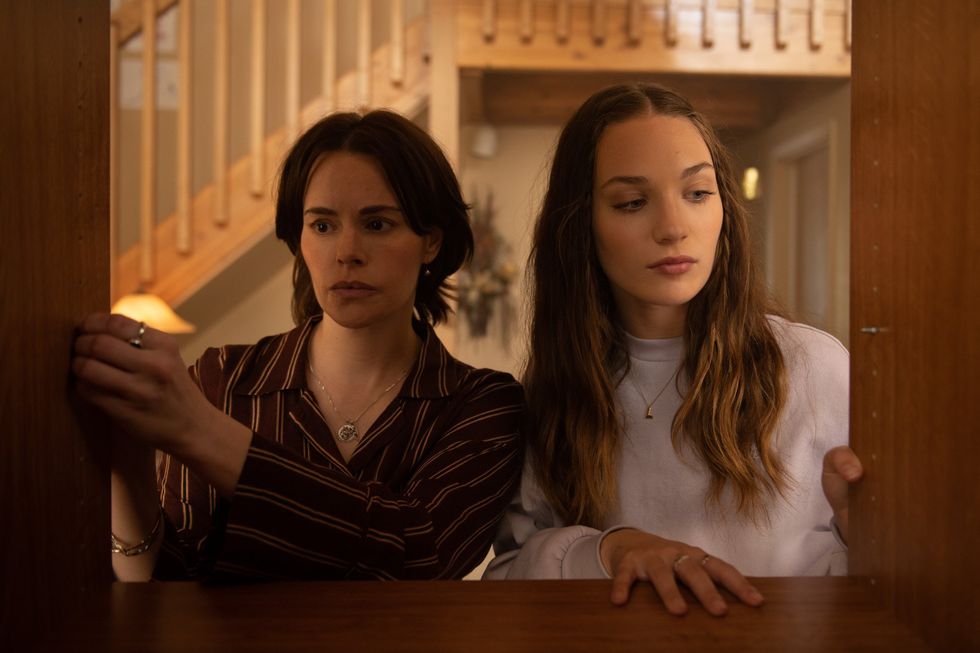
Courtesy of Elevation Pictures
When it comes to sex in film, It still feels like creators think there are only three ways to depict folks who have queer identities other than cis gay male. Hypersexual, sexually traumatized, or completely devoid of sexuality. They also love for us to yearn, chase, and pine for straight women. I wish they could show the range and depth that we have but also—I would love for us to simply be able to bang it out on screen. This need to pigeonhole us into these three sexual spaces—and then consistently adding unrequited longing into the mix—perpetuates boring and harmful cliches that I am sick of being associated with. When you ask someone about a lesbian film, they usually laugh. Our sex lives have been made into such a joke that even SNL has gotten in on the action. So now every middle America Mary, East Coast Leslie, and British-based Ben thinks that these films are accurate and the Lesbian Bed Death phenomenon lives on for another generation. I'm simply saying that just like in real life, there has to be a middle ground between yearning and fisting.
There was a much larger slate of queer films in 2023, and yay for that, but taking a look at a handful of those that I saw feature folks who have the aforementioned identities this is what I got. Eileen (a very not queer movie but marketed towards us and featured unlimited amounts of pining), Bottoms (chasing straight women and lying for sex, love, and validation), My Animal (more traumatic dykey dysfunction, though that egg scene was hot), Bad Things (hypersexual dysfunction and mommy issues), and Fitting In (a queer person of color being used for sexual exploration and curiosity.)
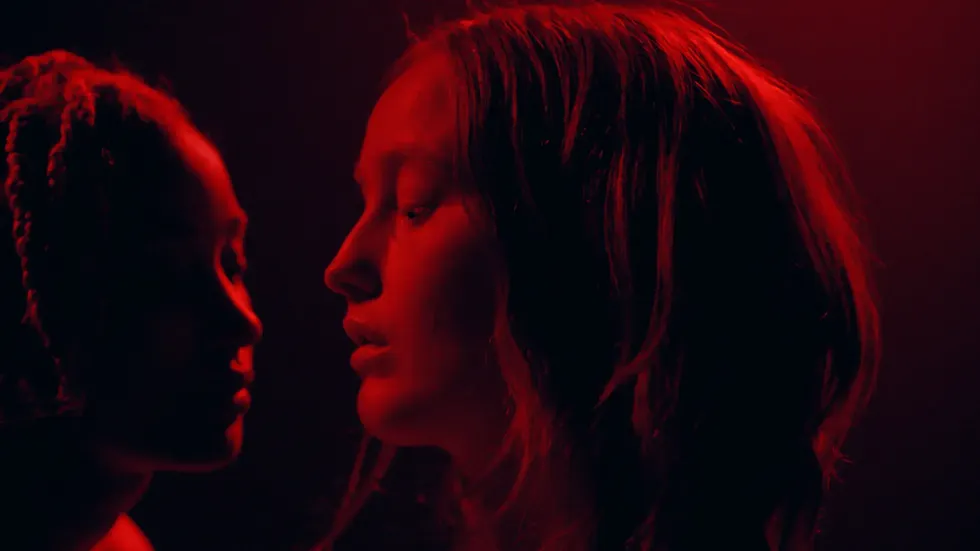
Courtesy of Shudder
We tell the community that we are making these films for us. We encourage them to go and see, share, and support. We review them and oftentimes talk about how icky they are but say support anyway because we need more queer stories. These are things we have to stop doing. It is CRUCIAL for us to move beyond accepting and celebrating mediocre queer representation on the screen. It’s okay for us to demand more from queer filmmakers (and straight filmmakers who are creating queer stories) in every way, but especially in how our sex lives show up on screen. We can critique with a discerning but kind eye, we deserve to be able to do so, we've earned it.
It would also be great if we stop putting such emphasis on romantically/sexually pairing a Black person with someone who is white or non-Black POC. There is a constant push to pair Black folks with someone who isn’t and it’s weird and old, and when we do the colorism often just jumps out. It’s pushing forth a narrative that Black pleasure isn’t allowed unless whiteness—or proximity to it—is somehow involved. This shows how much we need much more actual inclusivity behind the camera when it comes to Blackness. The chances we do get to see Black queer love and sex on screen—that don’t fall into the three categories I mentioned— are put under the strongest of microscopes or cut short so that we don’t get to enjoy them but have to mourn them instead.
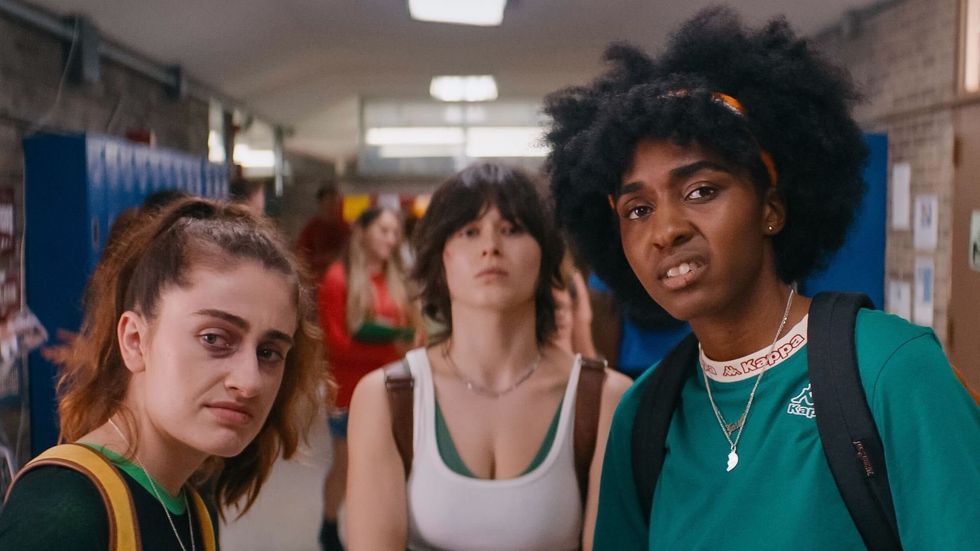
Courtesy of Metro-Goldwyn-Mayer
As queer people, our connection to pop culture often goes beyond entertainment. It's a source of guidance in navigating our identities and helps in our self-discovery, including sexual. Many queer people have made teachers and therapists out of our films, TV, Broadway shows, and more. So, we are limiting and harming ourselves and future generations by not showing a range of our sexual experiences on film. We can show our sexual realities but we must show our fantasies too, and we have to start leaving straight people the fuck out of it or at the very least stop making them such a focus. We are taking the tiniest steps possible towards it but we need to be running because I can’t keep watching The Handmaiden on repeat. I mean, I will, but my goodness do we deserve more. — Shelli Nicole
Views expressed in PRIDE’s opinion articles are those of the writers and do not necessarily represent the views of PRIDE.com or our parent company, equalpride.
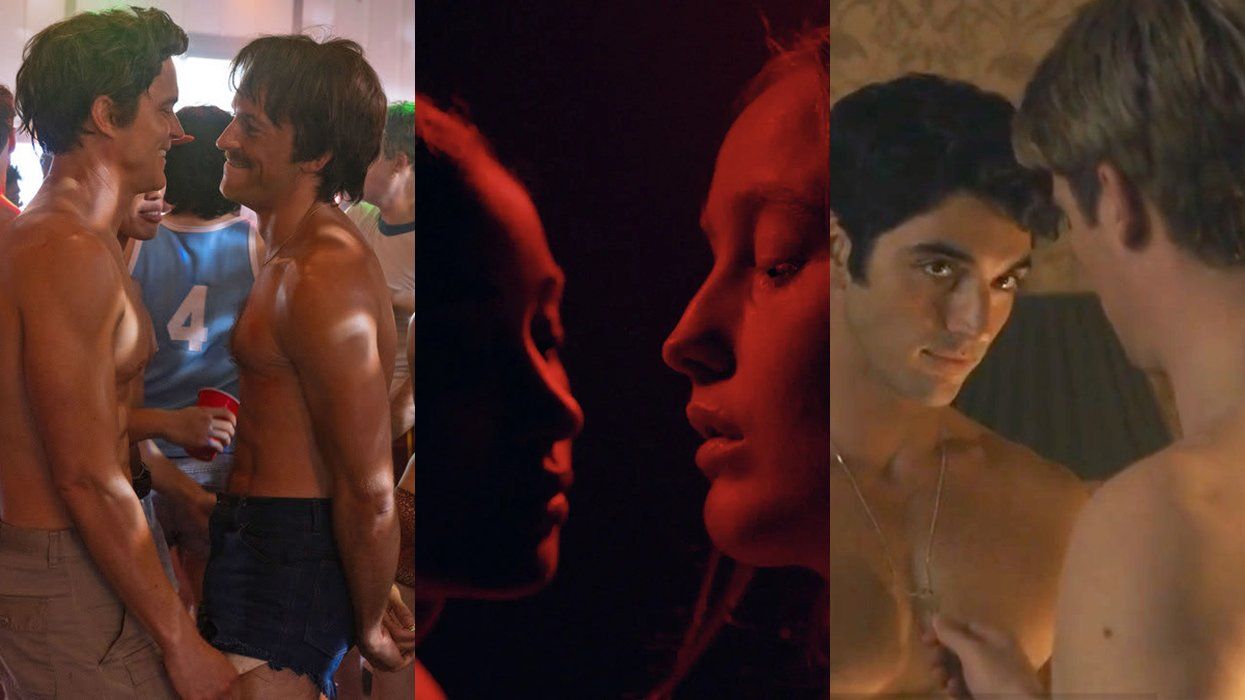
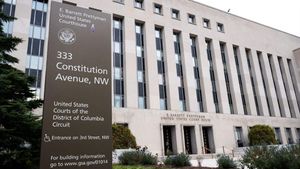



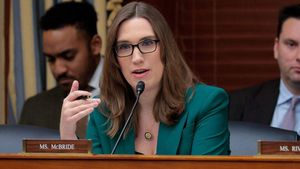
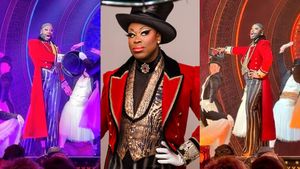



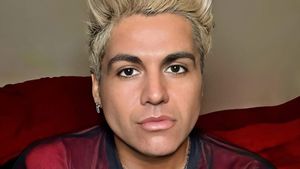
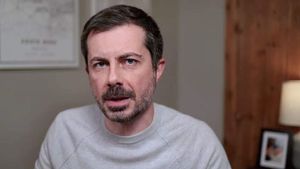
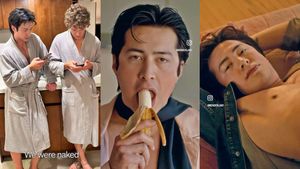
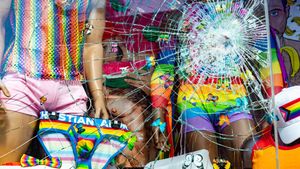
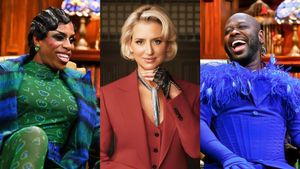

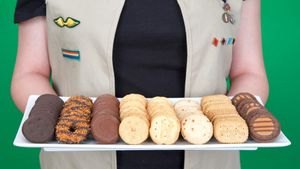


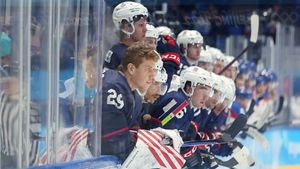


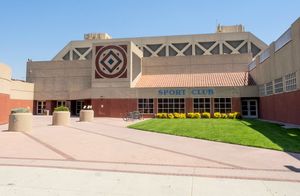



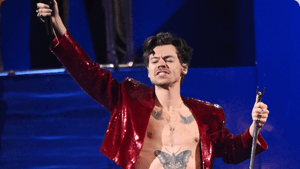



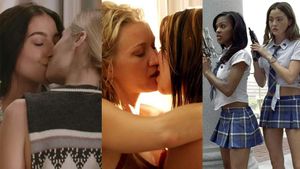



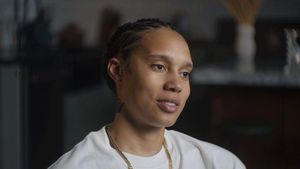






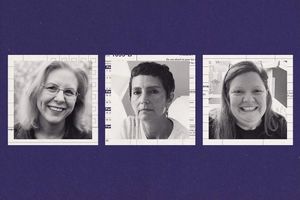



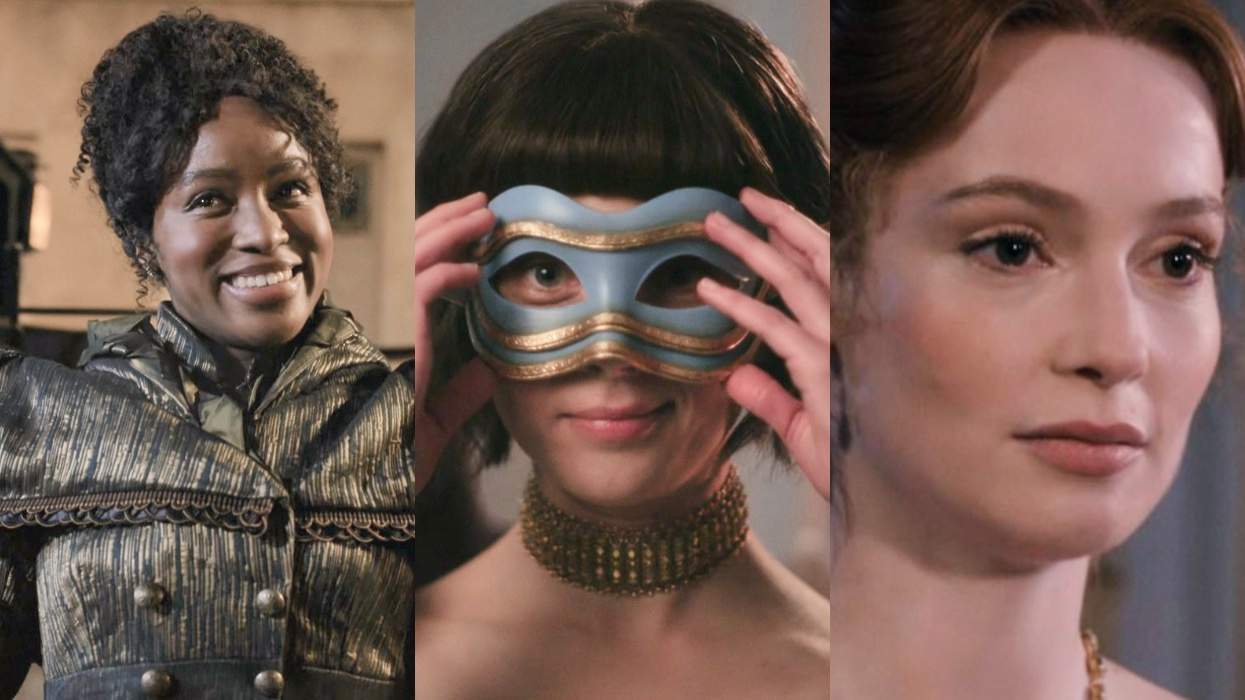
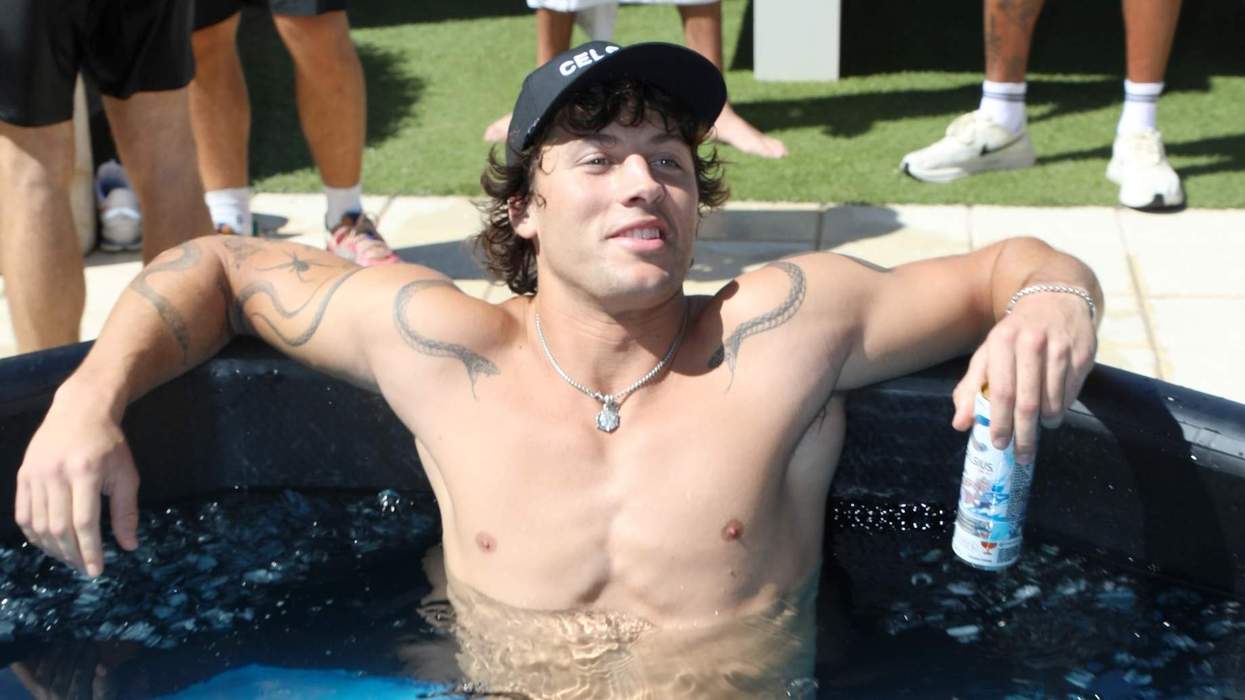
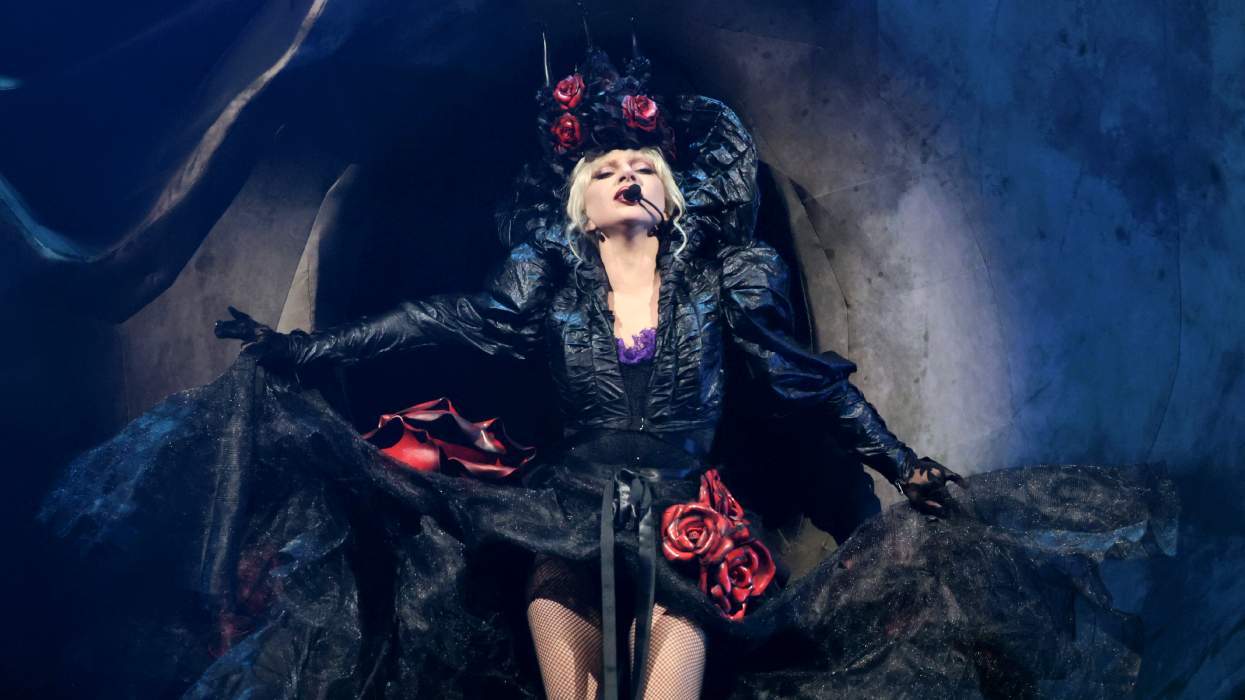





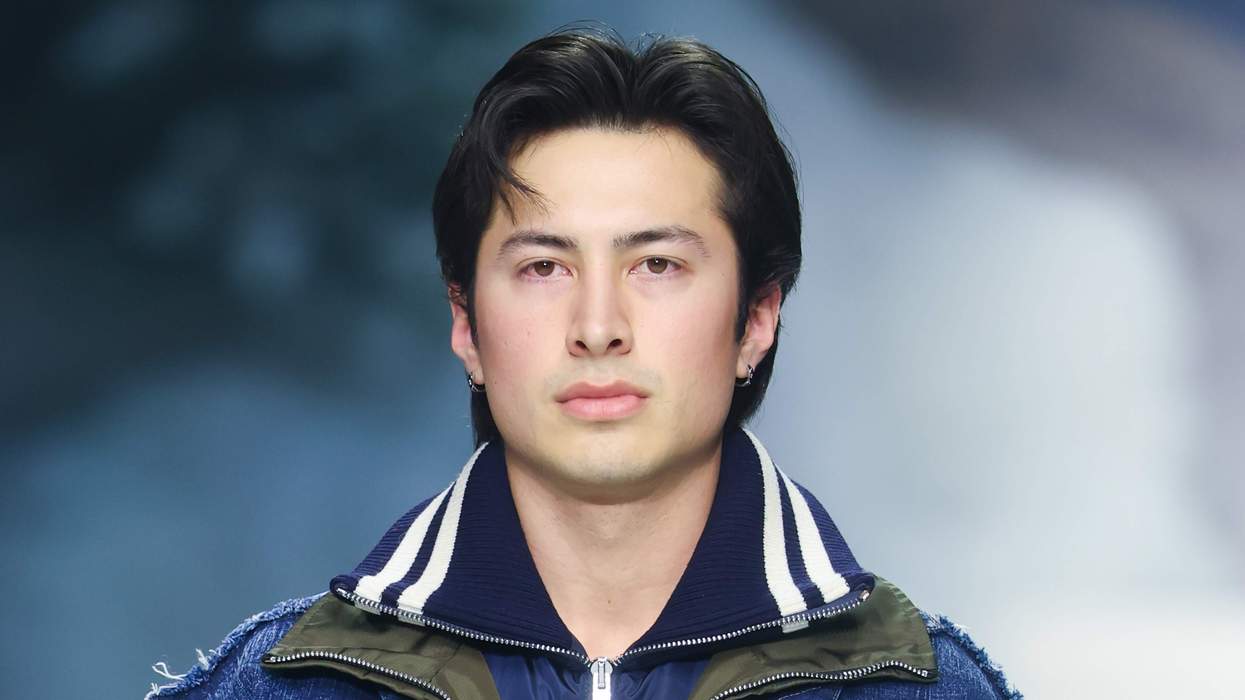
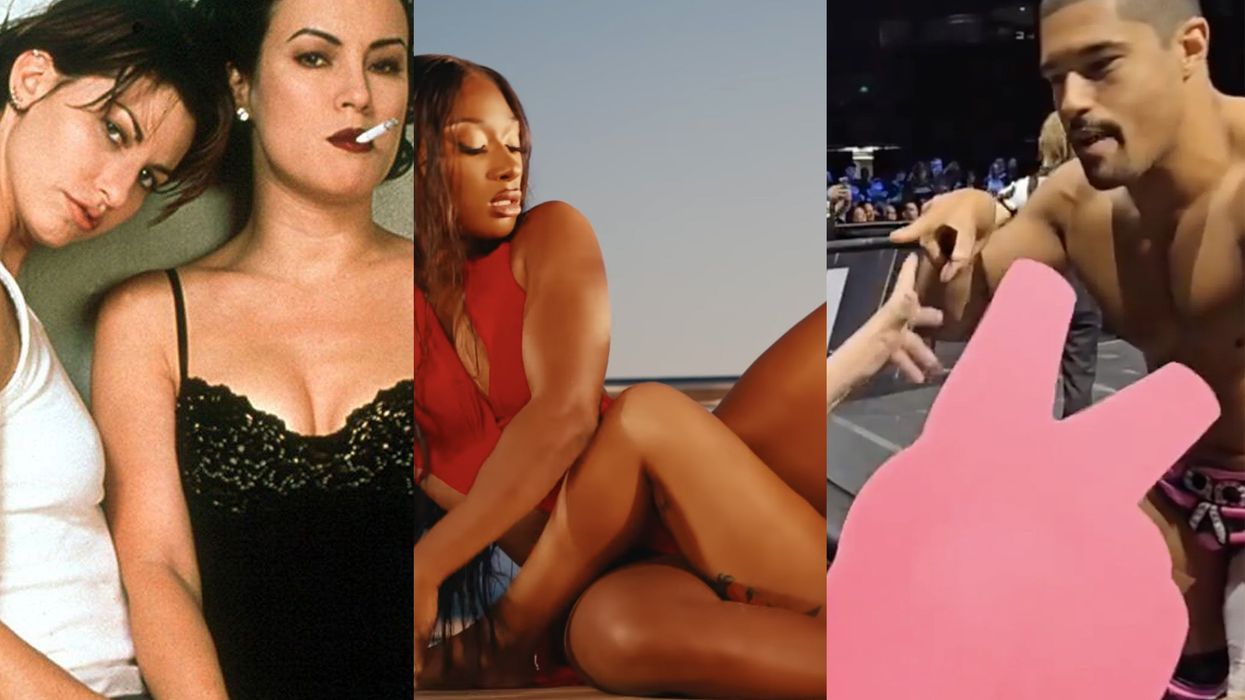
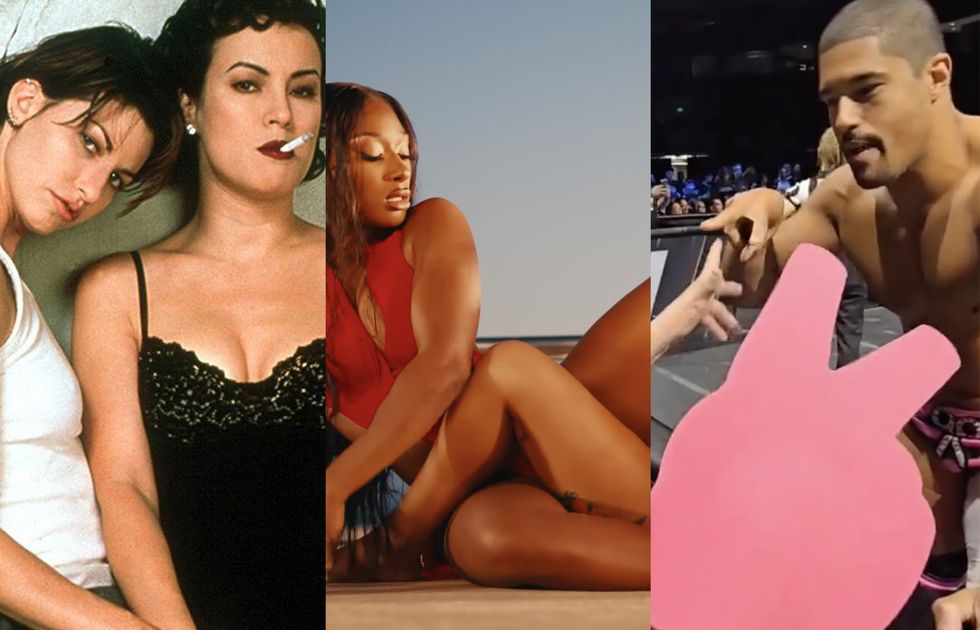
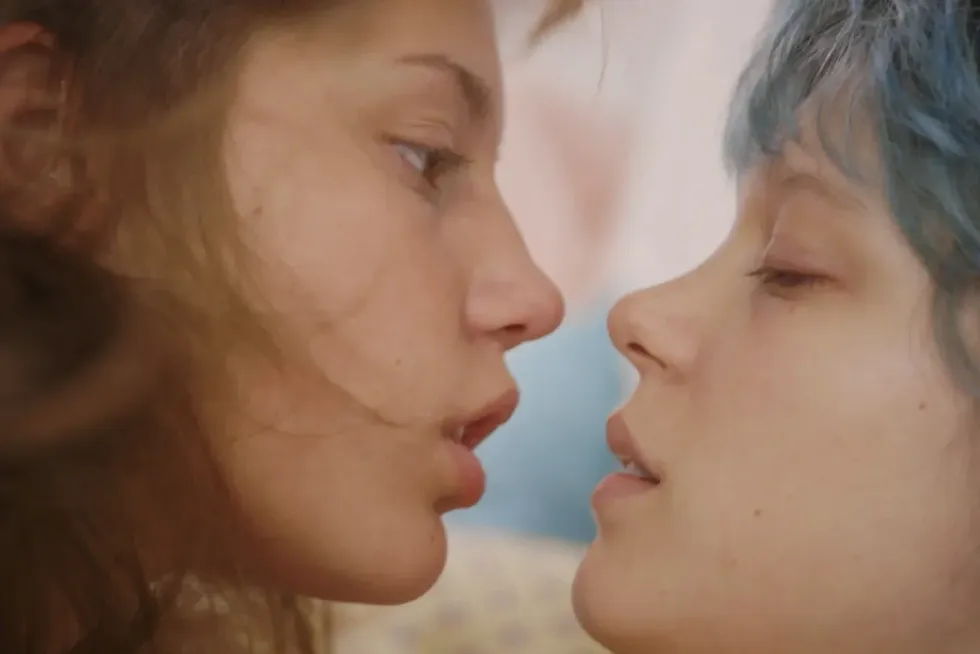
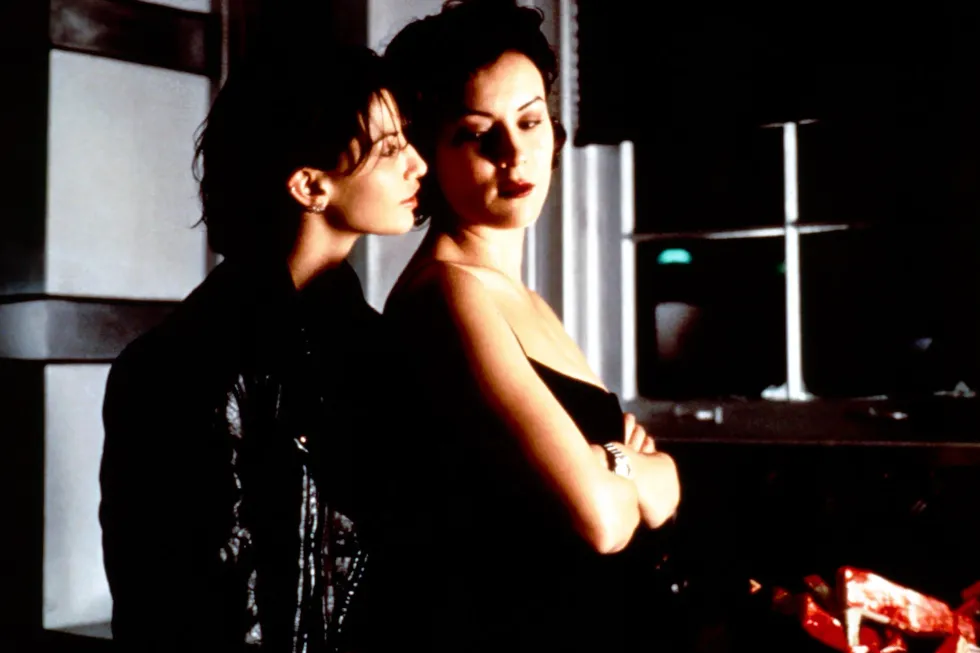

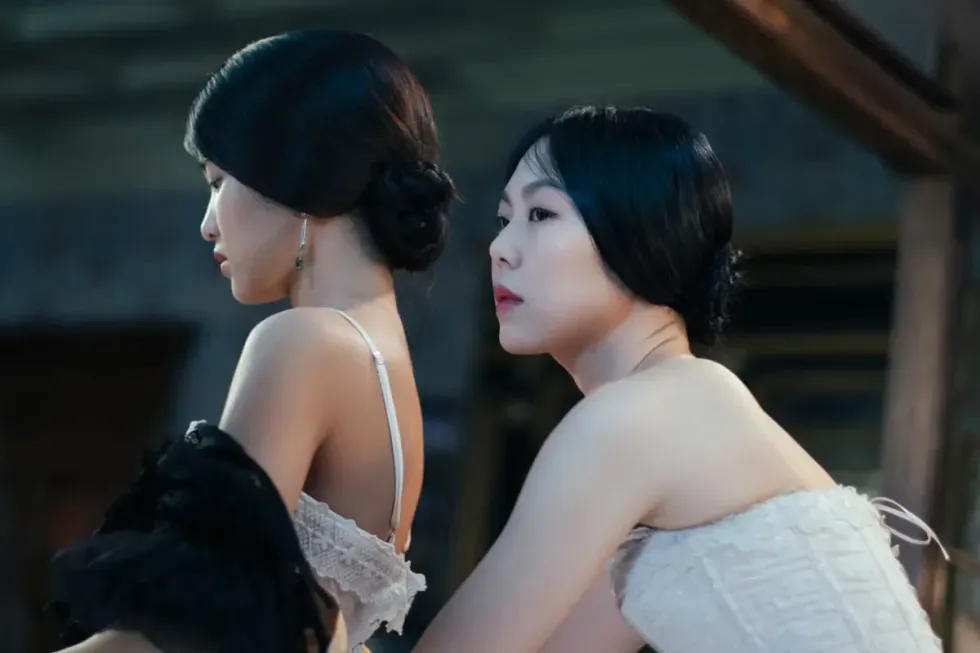



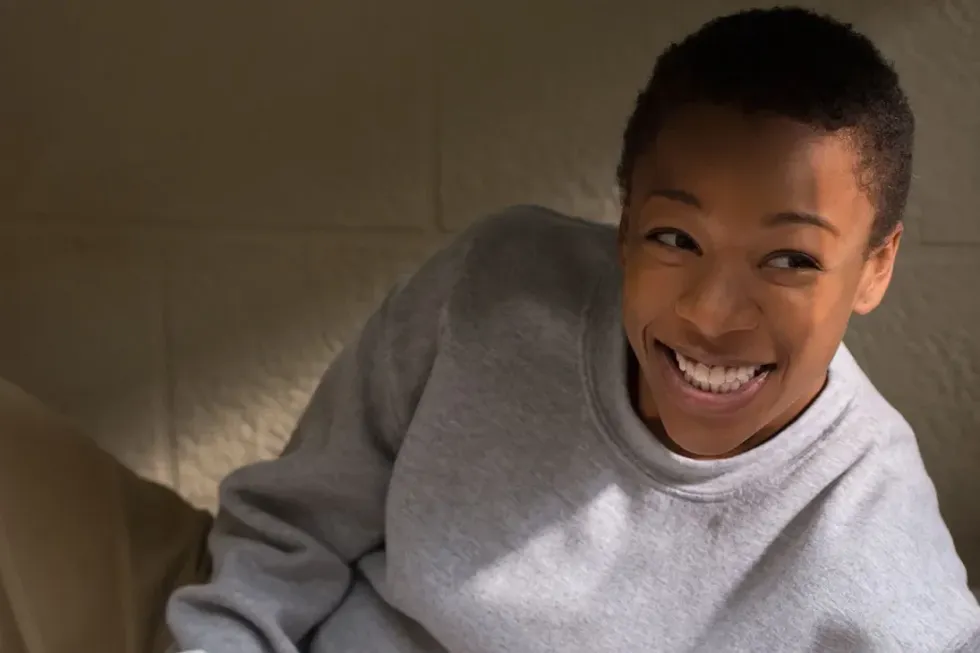

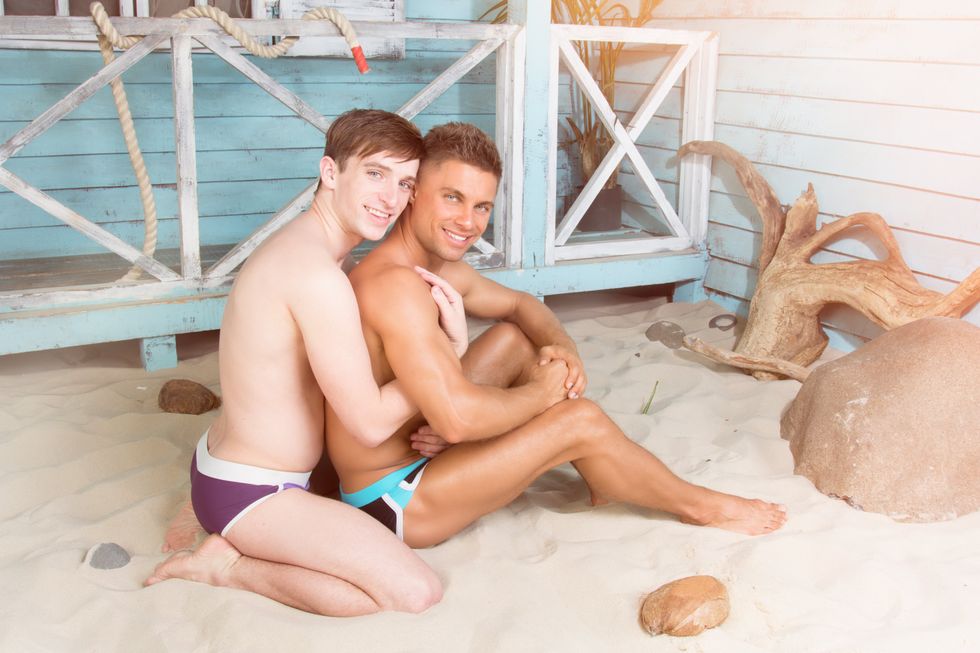




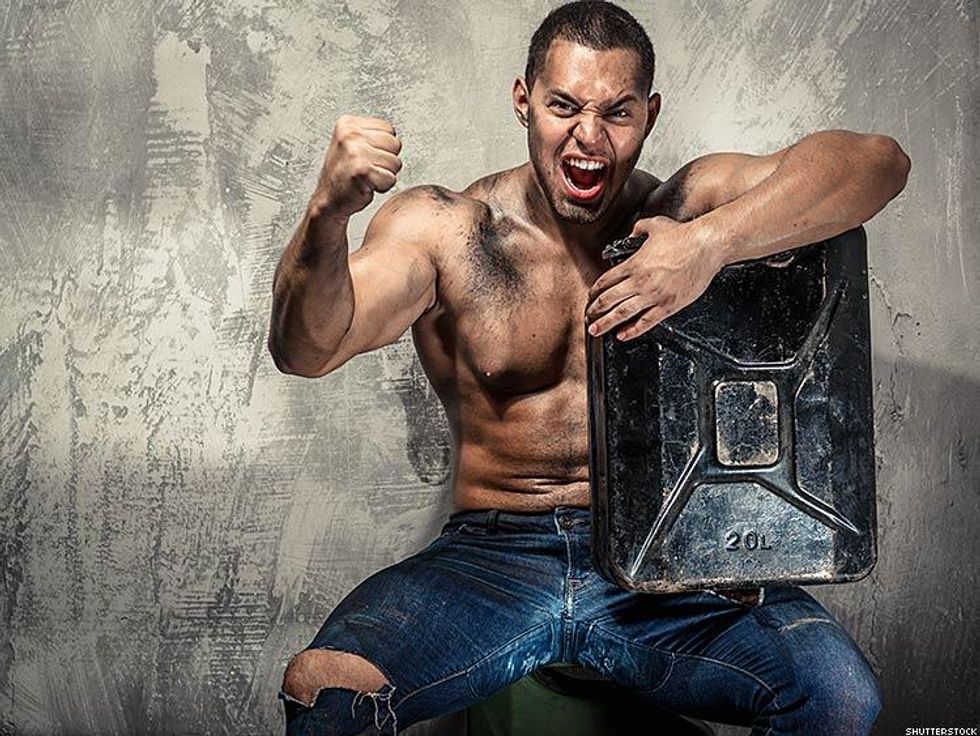

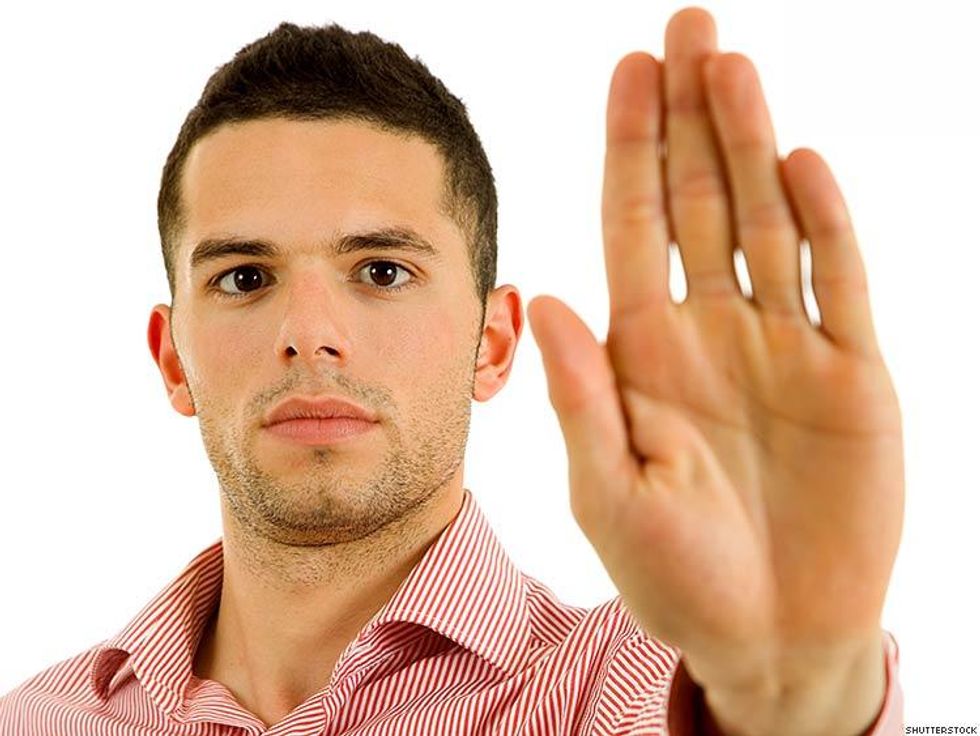


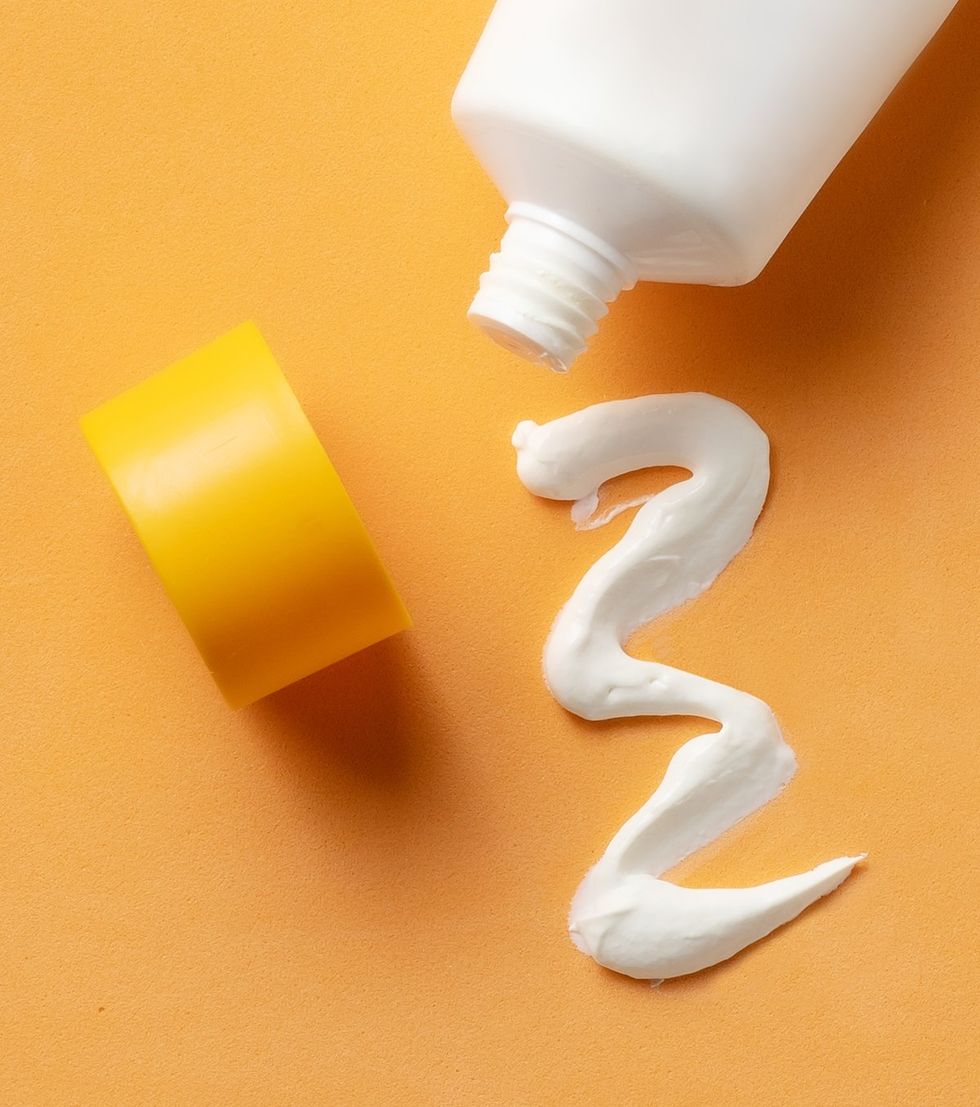


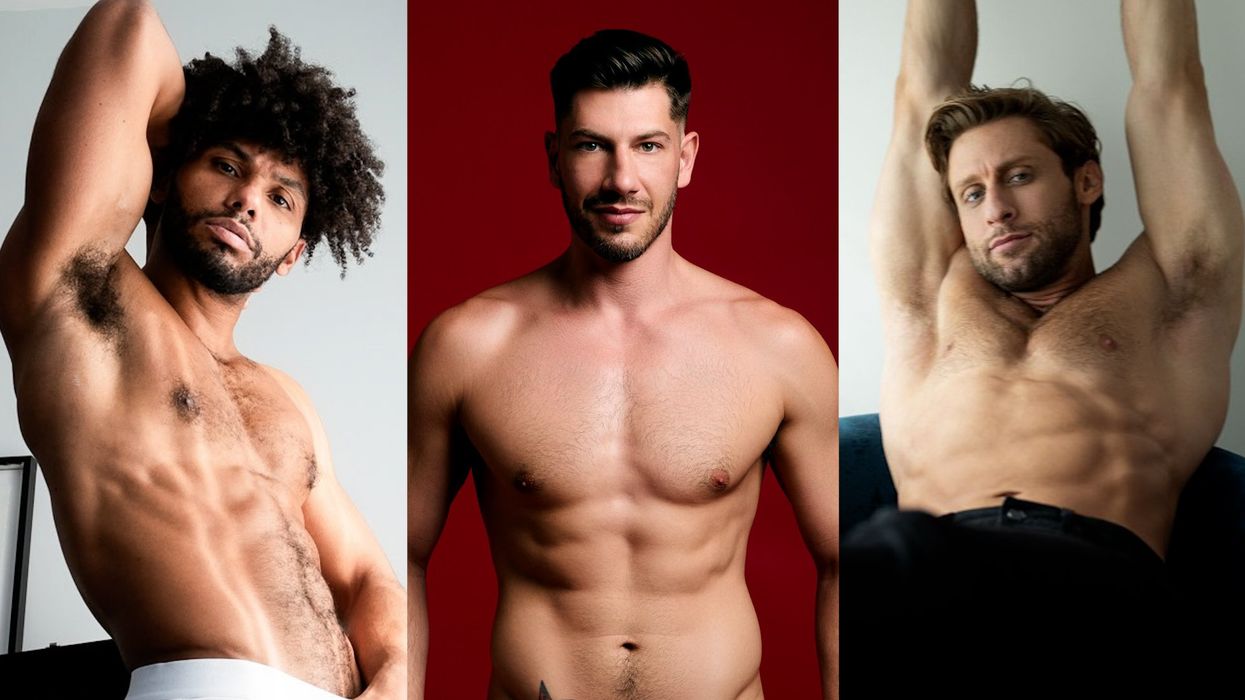
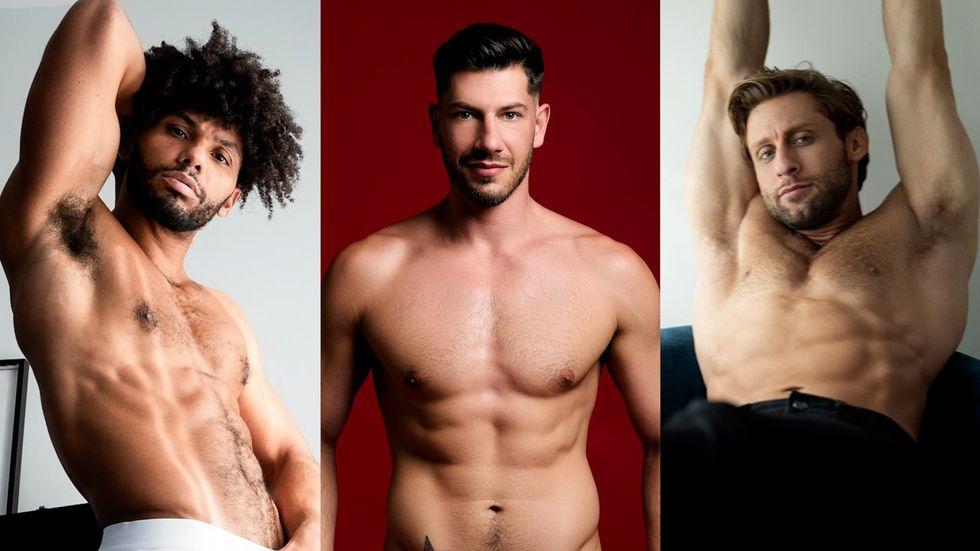 Adult stars Tony Genius, Jordan Starr, and Dom King.Mile High Entertainment / Carlos Salazar / Men.com
Adult stars Tony Genius, Jordan Starr, and Dom King.Mile High Entertainment / Carlos Salazar / Men.com
